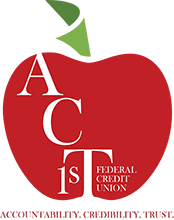
In a perfect world, summer would be a time for children and parents to soak up the sun and enjoy a slower pace. As most of us know, work calendars don’t align with school calendars. Summer camp is a lifesaver for busy households, and costs add up quickly, leaving many families feeling financially burdened.
Here are ten strategies for cutting costs this season:
1. Camp Scholarships: Many summer camps offer scholarships or financial aid for families in need. Chat with camp staff to determine your eligibility and submit any required documentation.
2. State Subsidies: Depending on where you live, some states offer income-eligible subsidy programs for qualifying families. Start your search online for local organizations that can steer you to the proper application forms.
3. Day Camps: Day camps can be significantly cheaper than overnight camps since they don’t include accommodation expenses. Look for day camps in your area that offer similar activities and experiences to overnight camps.
4. Sibling + Group Discounts: Do you have more than one camper in your household this year? Or perhaps even other children in your parent group that could add to the headcount? Look for camps that offer sibling and/or group discounts.
5. Community Programs: Most community recreation centers offer year-round low-cost or free programs for children, including day camps, sports leagues, or even virtual experiences led by online educators. Beyond rec centers, check out local offerings at YMCA or Boys & Girls Club.
6. Flexible Payment Plans: Research camps that offer flexible payment plans, allowing you to spread out the cost over several months rather than paying a lump sum upfront.
7. Partial Weeks: Does your schedule allow for partial weeks at camp? Many camps offer the option to enroll two or three days per week (or even on a per-day basis) instead of a full week session. This can make camp attendance more manageable in the short-term, especially if you have summer travel plans.
8. Pack Your Own Supplies: Camps often charge extra for snacks, meals, and supplies. Save money by packing your child’s snacks and lunch each day, and ensure they have necessary supplies like sunscreen, bug spray, and water bottles.
9. Flexible Spending Accounts: Some employers may allow allocation of FSA funds to cover expenses if the camp is considered a qualified dependent care expense. Check your specific plan to confirm whether summer camp expenses are reimbursement eligible.
10. Volunteer Opportunities: Some camps offer discounts for families willing to lend their time (similar to co-op programs where parents can assist in classrooms). Helping with administrative tasks or coordinating activities has the secondary benefit of enriching your resume.
You’re not alone when it comes to crunching the numbers. Connect with your financial institution to see what resources we offer and consider free financial counseling with our trusted partner, GreenPath Financial Wellness, if you need support in building your summer budget.
Additional Resources:
Interactive Budgeting Worksheet




